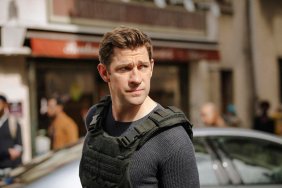Series Overview:

I think the one lesson we can all take from Jack Ryan is that it’s okay to have an adult hero in a spy universe. Jack Ryan shouldn’t be a young upstart. He should be a comfortable working man. That is his character. Ironically, it’s when filmmakers actively try to make action heroes more adult that they make them more adolescent. Brooding existential self-awareness and “meaningful” questions about one’s own role as a superhero is actually not the purview of adulthood. That is what people in their teens go through. Being more mature and resolute is more adult.
Compare the early Jack Ryan to the later ones. As he got younger and more self-aware, he became less interesting and less complex. In 1989, Batman was an adult who had already come to the conclusion that being Batman was something he had to do. In 2005, he was younger, and questioned everything. In 1978, Superman was a morally straight individual who was relieved to be a superhero, not challenged by it, or confused by the questions raised. In 2013, Superman essentially became Batman.
Jack Ryan, then, can serve as a lesson in action hero construction. Action heroes are better when they’ve already elected to become action heroes. We can have an origin story, sure, and see how they came to those decisions, but their decisions should eventually be the most logical and noble choices. The most heroic thing is the best thing. Ambiguity is nice too, but only once in a while, and not when applied to heroes that have decades of cultural clout behind them. Jack Ryan is a real-life wonk in an extreme situation, but he is smart enough and resolute enough to fight for what he believes in.
And that’s a good hero.
Witney Seibold is a featured contributor on the CraveOnline Film Channel, and co-host of The B-Movies Podcast. You can read his weekly articles Trolling, Free Film School and The Series Project, and follow him on “Twitter” at @WitneySeibold, where he is slowly losing his mind.







